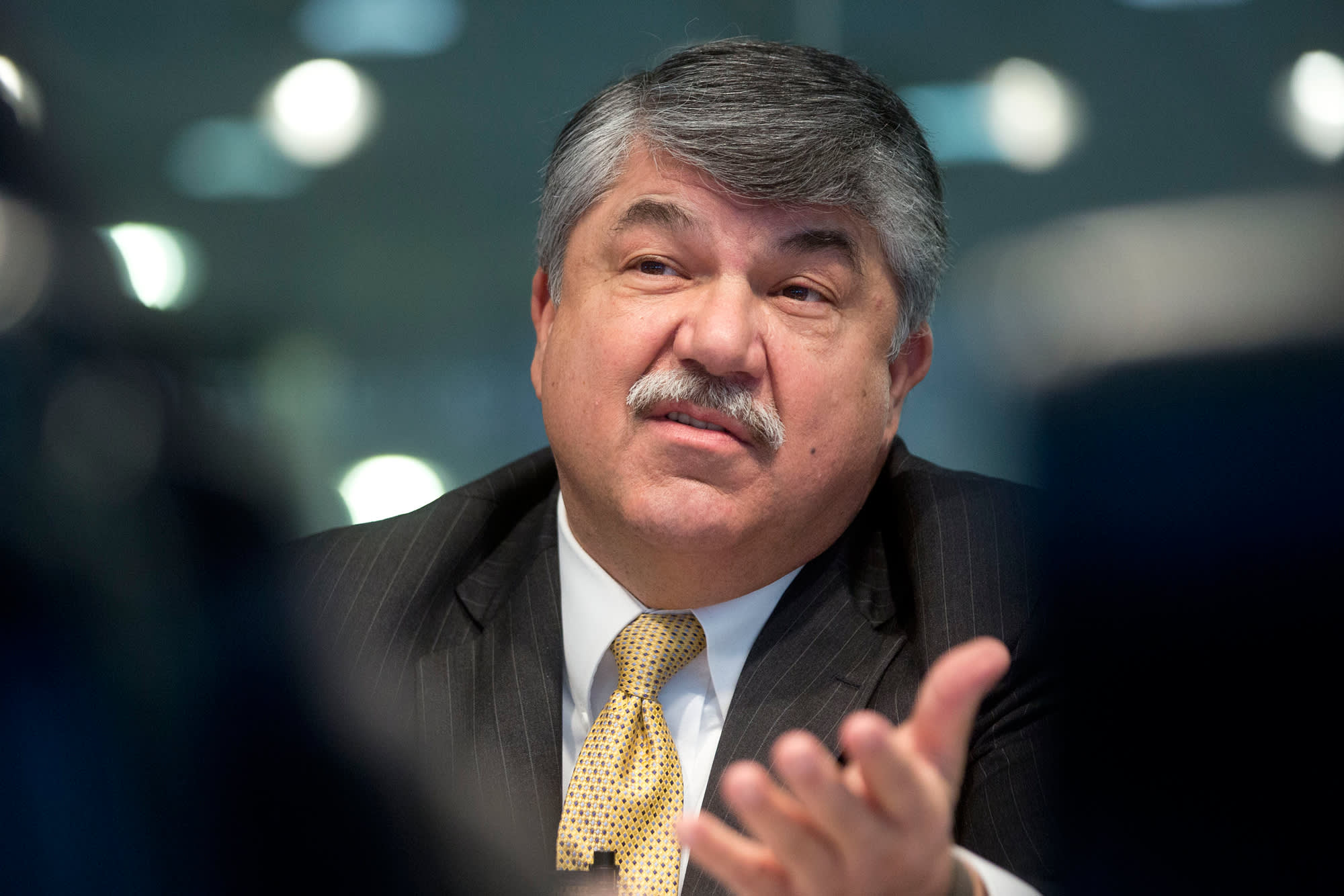
Over the past several decades, union membership has steadily declined. Bureau of Labor Statistics data indicates that in 1983, 20.1% of employed Americans were members of a union. By 2019, that share had decreased by roughly half to 10.3%.
However, as wealth inequality accelerates, essential workers organize for pandemic protections and President-elect Biden makes promises to be “the most pro-union president you’ve ever seen,” public support for unions is rising.
In 2018, researchers at MIT found that approximately 48% of nonunion workers would join a union if they could — representing some 58 million workers and nearly half of the nonunion workforce.
Gallup estimates that as of 2020 65% of all Americans approve of labor unions; including 83% of Democrats, 64% of independents and 45% of Republicans.
Courtesy of Gallup
Gallup’s figures indicate that public support for unions peaked in the 1950s, when as many as 75% of Americans agreed about the benefits of unionization. Support appears to have dipped during times of economic difficulty, including the 1980s and mid-2000s.
Courtesy of Gallup
“Now, unions are at an all-time high when it comes to favorability ratings,” claims Richard Trumka, president of The American Federation of Labor and Congress of Industrial Organizations, the largest federation of unions in the United States and commonly referred to as the AFL-CIO. “Half the workforce said they would join a union today if given the opportunity because they know that without the power of a union, workers are helpless.”
The coronavirus pandemic is behind the latest surge in support, he says.
“This pandemic has amplified [public support] even more. It showed how helpless workers are without a union. They couldn’t even get PPE and unions were able to get it for them,” says Trumka. “For years and years and years, people that we call ‘essential workers’ were invisible. It was as if no one knew they existed. They did their jobs every day to keep the country and the economy going. And then Covid came and everybody was staying home except people they called ‘essential workers’, people that were driving buses, and delivering food, and taking care of sick people, and making us better.
“Now people see those workers and the dignity that they represent.”
Rep. Mark Pocan, D-Wisc., walks down the House steps of the Capitol on Friday, Sept. 20, 2019.
Bill Clark/CQ-Roll Call, Inc via Getty Images
In November 2020, Democrat Congressmen Mark Pocan of Wisconsin and Donald Norcross of New Jersey announced the creation of the Labor Caucus. Both longtime union members, the pair hope to represent the interests of organized labor in the House alongside more than 50 fellow caucus members.
At the time of the announcement, Pocan told CNBC that he also sensed growing support for unions —despite long-time efforts to limit them.
“There’s been ongoing organized attacks on working people on behalf of Republican legislatures and governors, including in my state of Wisconsin, for years. They destroyed public employee unions back in 2010 and then Wisconsin became a ‘Right to Work’ state, which we never were. They even went after prevailing wage laws,” he says. “We’ve seen this across the country, but public opinion for people having a voice in their workplace through labor unions is at almost an all-time high. It’s really up there because people have seen those attacks have really made it harder for people to get a fair share and a fair shake in their workplace.”
Labor union advocates “have strong public support,” said Pocan. “We just have to make sure that we actually deliver on some of the things that people want us to deliver on.”
For the Labor Caucus, those deliverables include passing the PRO Act and raising the national minimum wage.
But “support for unions is not just about wages and benefits,” says Trumka. “It’s respect, it’s dignity and it’s health and safety.”
Memesha Davis, a union ironworker from Brooklyn, New York, says this sense of respect is one of the biggest benefits of being a union member.
“I’ve heard stories of non-union ironworkers. They’re just another face or just another number. As far as being in a union, being a union ironworker, the benefits are enormous. Like, I never thought that I’ll be able to see a pension,” she says. “But I always thought the unions were important because it’s like a big family.”
Don’t miss:



